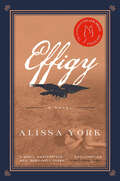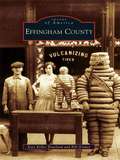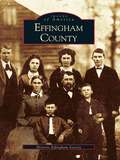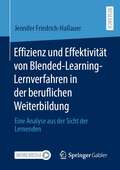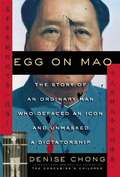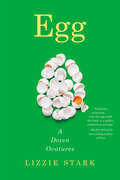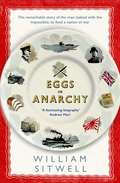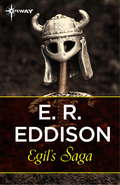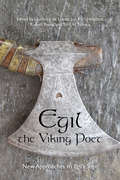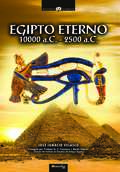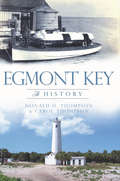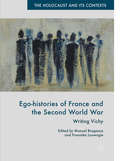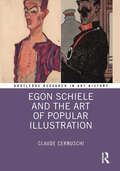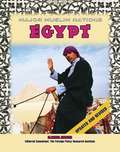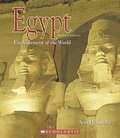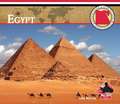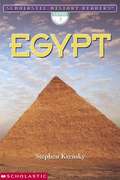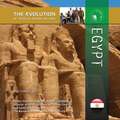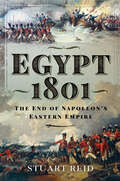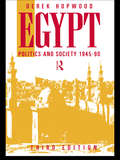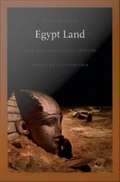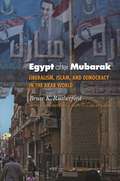- Table View
- List View
Effigy
by Alissa YorkA stunning novel of loss, memory, despair and deliverance by one of Canada’s best young fiction writers, set on a Mormon ranch in nineteenth-century Utah.Dorrie, a shock-pale child with a mass of untameable black hair, cannot recall anything of her life before she recovered from an illness at seven. A solitary child, she spends her spare time learning the art of taxidermy, completely fascinated by the act of bringing new and eternal life to the bodies of the dead. At fourteen, her parents marry her off to Erastus Hammer, a polygamous horse breeder and renowned hunter, who does not want to bed her. The role he has in mind for his fourth and youngest wife is creator of trophies of his most impressive kills, an urgent desire in him as he is slowly going blind. Happy to be given this work, Dorrie secludes herself in her workshop, away from Mother Hammer’s watchful eyes and the rivalry between the elder wives.But as the novel opens, Hammer has brought Dorrie his latest kills, a family of wolves, and for the first time in her short life she struggles with her craft, dreaming each night of crows and strange scenes of violence. The new hand, Bendy Drown, is the only one to see her dilemma and to offer her help, a dangerous game in a Mormon household. Outside, a lone wolf prowls the grounds looking for his lost pack, and his nighttime searching will unearth the tensions and secrets of this complicated and conflicted family.Inspired by the real events of the Mountain Meadows Massacre in 1857, Alissa York blends fact with fiction in a haunting story of a family separated by secrets and united by faith.
Effingham County (Images of America)
by Kate Keller Bourland Bill GrimesThe history of Effingham County is closely tied to the development of transportation through America's heartland. Beginning with the old National Road, through the golden age of railroads, onward to today's interstate highway system, the county has developed alongside the nation's great transportation innovations. Given the county's location between Chicago to the north, St. Louis to the west, and Indianapolis to the east, it is easy to justify the "Heart of the USA" and "Crossroads of America" designations. Effingham County, however, is more than railroad yards and highway interchanges. This book shows the rich fabric of life woven throughout the history of the city of Effingham and smaller towns, including Teutopolis, Altamont, Beecher City, Dieterich, Watson, Mason, Edgewood, Montrose, and Shumway.
Effingham County (Images of America)
by Historic Effingham SocietyOn March 12, 1734, German Salzburger immigrants arrived in the southern portion of Georgia where, with handmade bricks, they constructed the Jerusalem Lutheran Church. Within its hallowed walls an active congregation still worships today, and the community that flourished around this sacred landmark is now known as Effingham County. The founding fathers of the early settlement also established a gristmill, a sawmill, a school, and an orphanage, bringing to life the optimistic sentiments they had carried across an ocean and into a new world. Effingham County celebrates, in word and image, the spirit and achievements of these industrious pioneers, who forged a special relationship with the land on which they settled. While religion was a focal point of the new community, commerce and industry could not be overlooked in a young America poised for an unprecedented role on the world's stage. The rivers that flowed through the county, the Savannah and the Ogeechee, made it possible for the local residents to transport their cotton and timber to the bustling markets in Augusta and Savannah; later, major railroad lines would pass through the county, connecting it to economic opportunity in the rest of the state and beyond. Today, Effingham County is made up of several small towns, with Springfield designated as the county seat. The people who live, work, and worship in these towns are ever respectful of the contributions of their hardworking ancestors, and maintaining the integrity of the community's unique character is a shared and enjoyed civic responsibility.
Effizienz und Effektivität von Blended-Learning-Lernverfahren in der beruflichen Weiterbildung: Eine Analyse aus der Sicht der Lernenden
by Jennifer Friedrich-HaßauerDie Ausgangslage dieser Analyse sind unterschiedliche Lernverfahren in der beruflichen Weiterbildung in Deutschland. Untersucht wird, wie diese sich auf den Lernerfolg der Lernenden auswirken. Es gilt, den Zielkonflikt zwischen den Anforderungen der Teilnehmenden und den Angeboten der Weiterbildungsanbieter zu lösen. Eine wesentliche Aufgabe ist es, die Lerntypen der Lernenden zu ermitteln und sich auf dieser Basis geeignete Lernverfahren zu erarbeiten. Daraus wird die Forschungsfrage abgeleitet, wie effizient und effektiv Blended-Learning-Lernverfahren sind und wie diese sich im Lernprozess auf den Lernerfolg auswirken. Das Ergebnis spiegelt sich in einer Empfehlung von Lernverfahren wider, die sich als effizient und effektiv aus der Sicht der Lernenden unter Berücksichtigung der jeweiligen Einflussfaktoren erweisen.
Egg Harbor City (Images of America)
by Mark W. MaxwellEgg Harbor City was founded as a refuge from the sweeping nativism of the Know-Nothings, a group that tried to limit immigration and naturalization into the United States. Egg Harbor City was a place where German Americans could maintain the traditions, language, and lifestyle of their fatherland. The city was designed in rectangular blocks with lots for building, gardening, or farming. Parks were built and a harbor was planned on the north side of the city with rail lines connecting it to the Camden and Atlantic Railroad. Following the 1876 Centennial Exhibition in Philadelphia, Egg Harbor City's wines earned the community great respect, and it became known as the "Wine City," drawing hundreds of visitors to its many wineries. Egg Harbor City celebrates the early years of the place once known as the most German city in the United States of America.
Egg on Mao: The Story of an Ordinary Man Who Defaced an Icon and Unmasked a Dictatorship
by Denise ChongAs Chinese students demonstrated for democracy in Tiananmen Square in 1989, three Chinese men peppered the square's giant portrait of Mao Zedong with 30 paint-filled eggs. Instead of inciting further protests, this act had the opposite result: student leaders turned the three egg-throwers over to the police. In her first book in almost ten years, Chong tells the story of one of these men, Lu Decheng, an auto mechanic from Hunan province. Weaving together the stories of Lu's childhood, the planning and execution of the protest, and Lu's imprisonment after his arrest, the author shows delineates the unlikely path that took Lu from an anonymous life in small-town China to risking everything to make a political statement. Based on the author's numerous interviews with Lu and with sources in China, this book will appeal to anyone interested in China, in human rights, or in an excellent read.
Egg: A Dozen Ovatures
by Lizzie Stark“Endlessly surprising.… Like the egg itself, this book is a perfect, miraculous package.” —Mary Roach, best-selling author of Fuzz An unconventional history of the world’s largest cellular workhorse, from chickens to penguins, from art to crime, and more. The egg is a paradox—both alive and not alive—and a symbol as old as culture itself. In this wide-ranging and delightful journey through its natural and cultural history, Lizzie Stark explores the egg’s deep meanings, innumerable uses, and metabolic importance through a dozen dazzling specimens. From Mali to Finland, mythologies around the globe have invested the egg with powers of regeneration and fecundity, often ascribing the origin of the world to a cosmic egg. An oracle to Romans, fought over by Gold Rush gangs, used as the foundation of the Clown Egg Registry, and blasted into space, the egg has taken on larger proportions than, say, the ovum of an ostrich. It has starred in global dishes from the Korean comfort food ttukbaegi gyeranjjim to the less regaled yet iconic soft-boiled egg. Stark writes a biography of French-born chef Jacques Pépin through his egg creations, and weaves in her personal experiences, like attempting to make the perfect omelet or trying her hand at pysanky—the Ukrainian art of egg decoration. She also explores her fraught relationship to the eggs in her body due to a familial link to cancer, and shares her delight in becoming a mother. Filled with colorful characters and fascinating morsels, Egg is playful, informative, and guarantees that you’ll never take this delicate ovoid for granted again.
Eggs or Anarchy: to feed a nation at war
by William SitwellEggs or Anarchy is one of the great, British stories of the Second World War yet to be told in full. It reveals the heroic tale of how Lord Woolton, Minister for Food, really fed Britain. As a nation at war, with supply routes under attack from the Axis powers and resources scarce, it was Woolton's job to fulfil his promise to the British people, and Prime Minister Winston Churchill in particular, that there would be food on the shelves each week. Persuading the public to not resort to the black market and to manage on the very limited ration was one thing, but Woolton had to fulfil his side of the bargain and maintain supplies in time of crisis. A grammar school-educated genius, he was a fish out of water in Churchill's cabinet and the PM himself doubted Woolton would survive due to the unstinting criticism he faced from colleagues, the press and public. This is the story of how he battled to save his own career while using every trick in his entrepreneurial book to secure supplies. He battled to outwit unscrupulous dealers on the black market streets of cities within the British Empire - such as Alexandria in Eygpt - persuading customs authorities to turn a blind eye to his import schemes. If Britain had gone hungry the outcome of the war could have been very different. This book, for the first time, finds out the real story of how Lord Woolton provided food for Britain and her colonies and discovers that for him there were days when it was literally a choice of 'eggs or anarchy'.
Egil's Saga
by E. R. EddisonEgil's Saga is the tale of the long and brutal life of Egil Skallagrimsson, the tenth-century warrior-poet: a morally ambiguous character who was both the composer of intricately beautiful poetry and a physical grotesque capable of staggering brutality. It recounts Egil's progression from youthful savagery to mature wisdom as he struggles to avenge his father's exile from Norway, defend his honour against the Norwegian King Erik Bloodaxe, and fight for the English King Athelstan in his battles against Scotland. Translated from Icelandic by the great fantasist, E R Eddison, and accounted by many to be the greatest of the Icelandic sagas, Egil's Saga is a fascinating depiction of a deeply human character.
Egil's Saga
by E. R. EddisonEgil's Saga is the tale of the long and brutal life of Egil Skallagrimsson, the tenth-century warrior-poet: a morally ambiguous character who was both the composer of intricately beautiful poetry and a physical grotesque capable of staggering brutality. It recounts Egil's progression from youthful savagery to mature wisdom as he struggles to avenge his father's exile from Norway, defend his honour against the Norwegian King Erik Bloodaxe, and fight for the English King Athelstan in his battles against Scotland. Translated from Icelandic by the great fantasist, E R Eddison, and accounted by many to be the greatest of the Icelandic sagas, Egil's Saga is a fascinating depiction of a deeply human character.
Egil, the Viking Poet
by Russell Poole Laurence De Looze Jon Karl Helgason Torfi H. TuliniusEgil, the Viking Poet focuses on one of the best-known Icelandic sagas, that of the extraordinary hero Egil Skallagrimsson. Descended from a lineage of trolls, shape-shifters, and warriors, Egil's transformation from a precocious and murderous child into a raider, mercenary, litigant, landholder, and poet epitomizes the many facets of Viking legend.The contributors to this collection of essays approach Egil's story from a variety of perspectives, including psychology, philology, network theory, social history, and literary theory. Strikingly original, their essays will appeal not only to dedicated students of Old Norse-Icelandic literature but also to those working in the fields of Viking studies, comparative ethnology, and folklore.
Egipto eterno, 10000 -2500 A.C. (Historia Incógnita)
by José Ignacio Velasco MontesUn recorrido visual por los orígenes de la cultura egipcia, con sus mitos, los Reyes-Dioses, las primeras dinastías, una época pretérita, legendaria que nos permitirá conocer a fondo la cultura más fascinante de la historia.
Egmont Key: A History (Brief History)
by Carol Thompson Donald H. ThompsonEgmont Key has been a sentinel for ships entering Tampa Bay from the Gulf of Mexico for hundreds of years. Early European explorers recognized the island's strategic location. Its story reflects major events in the history of the United States and Florida, as the island played a role in the Seminole Wars, the Civil War, the Spanish-American War and World Wars I and II. Its lighthouse, now automated, is still a beacon for ships. For many years, people have enjoyed the beaches of Egmont Key, walked the red brick "roads to nowhere" and explored the ruins of Fort Dade. Authors Don and Carol Thompson aim to foster an appreciation of the uniqueness and beauty of Egmont Key, as well as an understanding of its place in history.
Ego-histories of France and the Second World War: Writing Vichy (The\holocaust And Its Contexts Ser.)
by Manuel Bragança Fransiska LouwagieThis volume presents the intellectual autobiographies of fourteen leading scholars in the fields of history, literature, film and cultural studies who have dedicated a considerable part of their career to researching the history and memories of France during the Second World War. Basedin five different countries, Margaret Atack, Marc Dambre, Laurent Douzou, Hilary Footitt, Robert Gildea, Richard J. Golsan, Bertram M. Gordon, Christopher Lloyd, Colin Nettelbeck, Denis Peschanski, Renée Poznanski, Henry Rousso, Peter Tame, and Susan Rubin Suleiman have playeda crucial role in shaping and reshaping what has become a thought-provoking field of research. This volume, which also includes an interview with historian Robert O. Paxton, clarifies the rationales and driving forces behind their work and thus behind our current understanding of one of the darkest and most vividly remembered pages of history in contemporary France.
Egon Schiele and the Art of Popular Illustration (Routledge Research in Art History)
by Claude CernuschiPresenting a radically different picture of Egon Schiele’s work, this study documents (in one-to-one comparisons) the extent of the artist’s visual borrowings from the Viennese humoristic journal, Die Muskete. Claude Cernuschi analyzes each comparison on a case-by-case basis, primarily because the interpretation of cartoons and caricatures is highly contingent on their specific historical and cultural context. Although this connection has gone unnoticed in the literature, in retrospect, this correlation makes perfect sense. Not only was Schiele’s artistic production frequently compared to caricature (and derided for being “grotesque”), but Expressionism and caricature are natural allies. One may belong to “high” art and the other to “popular” culture, yet both presuppose similar assumptions and deploy a similar rhetorical position: namely, that the exaggeration of human physiognomy allows deeper psychological “truths” to emerge. The book will be of interest to scholars working in art history, visual culture, popular culture, and politics.
Egypt
by Clarissa AkroydNearly 5,000 years ago, on the eastern edge of the Sahara Desert, one of the world's earliest and greatest civilizations began to flourish. That civilization, Egypt, has held a firm grip on the human imagination ever since, with its powerful pharaohs, its awe-inspiring pyramids, and its mysterious religious beliefs. But Egypt is much more than a land of unsurpassed archaeological wonders. Today, it is the most populous Arab country; it was also the first Arab nation to make peace with Israel. As this ancient land struggles with the many problems of the 21st century, it remains a vital member of the global community. Discusses the geography, history, economy, government, religion, people, foreign relations, and major cities of Egypt.
Egypt (Enchantment of the World)
by Ann HeinrichsThe contents include 'Things of Unspeakable Greatness', Desert Life, Governing Egypt, Life and Learning etc.
Egypt (Explore The Countries)
by Julie MurrayInformative, easy-to-read text and oversized scenic photos draw in readers as they journey through Egypt home of the mighty Nile River, the magnificent Great Sphinx and Pyramids of Giza, and the tomb of King Tut. Readers will learn about Egypt s history, government, major cities, land features, natural resources, culture, and more! Maps, a timeline with photos, fun facts, and pronunciation guides aid readers. The book closes with a facts page including Egypt s population and total area, as well as images of the Egyptian flag and currency. Students will find valuable report information while exploring Egypt! Table of contents, glossary, and index included. Aligned to Common Core Standards and correlated to state standards. Big Buddy BOOKS is an imprint of ABDO Publishing Company.
Egypt (Exploring World Cultures Series)
by Kate ShoupEgypt is a country that has existed for many centuries. It is a land of pyramids, pharaohs, and history. This book examines the many areas that make up Egypt, such as geography, food, sports, and traditions. It is written clearly and in an easy-to-read manner. It connects young readers to the text by using photographs and vocabulary.
Egypt (Scholastic History Reader™)
by Stephen KrenskyRead all about the secrets of ancient Egypt--from hieroglyphs to underground tombs. The Scholastic History Readers series was created especially to bring history to life for beginning readers.
Egypt (The Evolution of Africa's Major Nations)
by William Mark HabeebThe Egyptian civilization along the Nile River was one of the ancient world's earliest and most influential empires. From pyramids to mummies to hieroglyphs, the unique and mysterious lore of this region in northeastern Africa still engages the imagination. While much has changed over the centuries, Egypt remains a fascinating place. Traditionally, Egypt's moderate political stance in the Arab world has given the country a strategic place on the world stage and made it a stabilizing force in the Middle East. However, in 2011 Egypt underwent a revolution that ousted longtime president Hosni Mubarak from power. Today, Egypt faces political and economic uncertainty, as its newly elected government attempts to rule under the country's new constitution.
Egypt 1801: The End of Napoleon's Eastern Empire
by Stuart ReidThe first campaign medal awarded to British soldiers is reckoned to be that given to those men who fought at Waterloo in 1815, but a decade and a half earlier a group of regiments were awarded a unique badge – a figure of a Sphinx - to mark their service in Egypt in 1801. It was a fitting distinction, for the successful campaign was a remarkable one, fought far from home by a British army which had so far not distinguished itself in battle against Revolutionary France, and one moreover which had the most profound consequences in the Napoleonic wars to come. In 1798 a quixotic French expedition led by a certain General Bonaparte not only to seize Egypt and consolidate French influence in the Mediterranean, but also to open up a direct route to Indian and provide an opportunity to destroy the East India Company and fatally weaken Great Britain. In the event, General Bonaparte returned to France to mount a coup which would eventually see him installed as Emperor of the French, but behind him he abandoned his army, which remained in control of Egypt, still posing a possible threat to the East India Company, until in 1801 a large but rather heterogeneous British Army led by Sir Ralph Abercrombie landed and in a series of hard-fought battles utterly defeated the French. Not only did this campaign establish the hitherto rather doubtful reputation of the British Army, and help secure India, but its capture en route of the islands of Malta gained Britain a base which would enable it to dominate the Mediterranean for the next century and a half. This little understood, but profoundly important campaign at last receives the treatment it deserves in the hands of renowned historian Stuart Reid.
Egypt 1945-1990: Politics and Society
by Derek HopwoodFirst published in 1991. Routledge is an imprint of Taylor & Francis, an informa company.
Egypt Land: Race and Nineteenth-Century American Egyptomania
by Scott TraftonEgypt Land is the first comprehensive analysis of the connections between constructions of race and representations of ancient Egypt in nineteenth-century America. Scott Trafton argues that the American mania for Egypt was directly related to anxieties over race and race-based slavery. He shows how the fascination with ancient Egypt among both black and white Americans was manifest in a range of often contradictory ways. Both groups likened the power of the United States to that of the ancient Egyptian empire, yet both also identified with ancient Egypt's victims. As the land which represented the origins of races and nations, the power and folly of empires, despots holding people in bondage, and the exodus of the saved from the land of slavery, ancient Egypt was a uniquely useful trope for representing America's own conflicts and anxious aspirations. Drawing on literary and cultural studies, art and architectural history, political history, religious history, and the histories of archaeology and ethnology, Trafton illuminates anxieties related to race in different manifestations of nineteenth-century American Egyptomania, including the development of American Egyptology, the rise of racialized science, the narrative and literary tradition of the imperialist adventure tale, the cultural politics of the architectural Egyptian Revival, and the dynamics of African American Ethiopianism. He demonstrates how debates over what the United States was and what it could become returned again and again to ancient Egypt. From visions of Cleopatra to the tales of Edgar Allan Poe, from the works of Pauline Hopkins to the construction of the Washington Monument, from the measuring of slaves' skulls to the singing of slave spirituals--claims about and representations of ancient Egypt served as linchpins for discussions about nineteenth-century American racial and national identity.
Egypt after Mubarak: Liberalism, Islam, and Democracy in the Arab World (Princeton Studies in Muslim Politics #48)
by Bruce K. RutherfordWhich way will Egypt go now that Husni Mubarak's authoritarian regime has been swept from power? Will it become an Islamic theocracy similar to Iran? Will it embrace Western-style liberalism and democracy? Egypt after Mubarak reveals that Egypt's secularists and Islamists may yet navigate a middle path that results in a uniquely Islamic form of liberalism and, perhaps, democracy. Bruce Rutherford draws on in-depth interviews with Egyptian judges, lawyers, Islamic activists, politicians, and businesspeople. He utilizes major court rulings, political documents of the Muslim Brotherhood, and the writings of Egypt's leading contemporary Islamic thinkers. Rutherford demonstrates that, in post-Mubarak Egypt, progress toward liberalism and democracy is likely to be slow. Essential reading on a subject of global importance, this edition includes a new introduction by Rutherford that takes stock of the Arab Spring and the Muslim Brotherhood's victories in the 2011-2012 elections.
